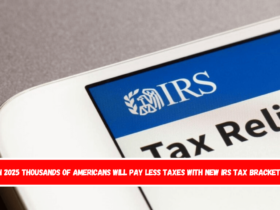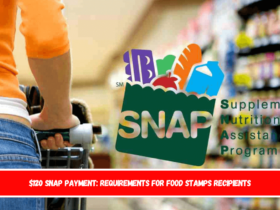Since mid-2024, many California families have benefited from a $500 monthly stimulus check program. This effort, led by the Fresno Economic Opportunities Commission, strives to help low-income families with young children by providing crucial financial assistance to those in most need.
The program lasts 12 months, and each selected family receives a total of $6,000 in monthly installments. It began in July 2024, with the final payment expected for July 2025. Participating families have already received half of their total payouts.
How the stimulus check works
The major goal of this effort is to provide a consistent source of income to help families meet basic requirements such as food, shelter, and education. Beyond immediate relief, the program is intended to promote long-term financial security, allowing participants to plan for the future with greater confidence and stability.
The initiative focusses on residents of Fresno and Huron County, specifically ZIP codes 93706 and 93234. Out of almost 10,000 applications, 150 families were chosen at random, demonstrating the high level of interest and demand for this service.
To qualify, applicants must meet the following requirements:
- Be at least 18 years old.
- Have filed a tax return in 2021.
- Meet income limits: $75,000 annually for single filers or $150,000 for married couples filing jointly.
- Be a parent or guardian of at least one child under the age of five.
These eligibility criteria were designed to prioritize families with young children, who often face the greatest economic challenges.
Why this initiative matters
What distinguishes this program is the flexibility it provides families in how they spend the monies. Unlike many public assistance programs, participants have no limits on how they spend their money. Families can use the funds for whatever they think most important—rent, groceries, debt repayment, or other necessary costs.
This technique empowers families to manage their finances independently, reducing financial stress while also boosting emotional well-being. Previous research on similar schemes has found that direct financial aid can result in long-term benefits such as increased job stability and higher educational outcomes for children.

Background and context
The concept of guaranteed income is not new to California. Programs such as the one launched in Stockton in 2019 were highly effective in eliminating poverty and improving participants’ quality of life.
At the national level, the debate over direct economic support gained traction with the expansion of the Child Tax Credit in 2021. This legislation dramatically reduced child poverty, but when it expired in 2022, poverty rates skyrocketed, putting many families back at risk.
Fresno’s program is a localised effort to address these difficulties, building on established solutions and customising them to the unique needs of the community it serves.
What’s ahead for the coming months
The program’s final payment is scheduled for July 2025. Until then, families will continue to receive monthly payments as organisers review the program’s results. This review will assist determine whether the effort can be expanded or modified in the future.
Although the program’s current reach is limited, this pilot initiative has the potential to be a watershed moment in calling for more expansive, ambitious policy. Finally, this effort demonstrates the transformative influence that financial aid can have on vulnerable communities, providing a ray of hope and stability to families working to construct a better future.
One noteworthy component of this program is its ability to impact broader discussions regarding economic policy in the United States. By focussing on direct, unrestricted monetary aid, the Fresno initiative defies standard welfare practices that frequently put onerous limitations on users.
The program’s flexibility recognises each family’s unique circumstances, allowing them to make financial decisions based on their urgent requirements.
This strategy could serve as a model for other communities, proving that empowering families to manage their own resources can result in significant economic and social benefits.











Leave a Reply